BANK OF ALBANIA
PRESS RELEASE
The end-of-year meeting of Governor Sejko with media representatives and Governor’s Award ceremony
Publication date: 20.12.2022
On 20 December 2022, the Governor of the Bank of Albania, Mr Gent Sejko, received renowned publicists, experts, and journalists of print and electronic media in Albania, on the occasion of the traditional end-of-year meeting.
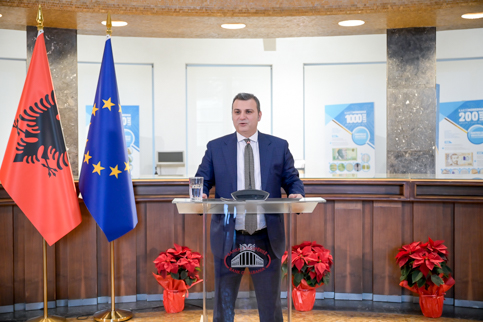
In the opening address Governor Sejko thanked the media representatives for their presence, as well as for convening the communication of the Bank of Albania to the public in professional manner and with integrity shown throughout 2022.
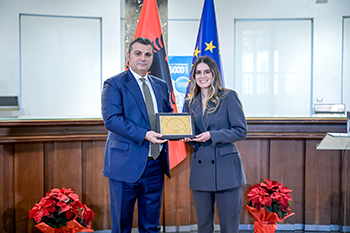
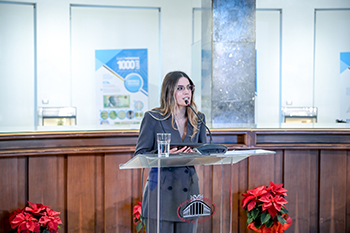
The Governor emphasized that in the last years the economy in Albania has faced several challenges, for the covering and informing the public with objectivity and truthfulness, has had a significant role in safeguarding a stable economic and financial environment.
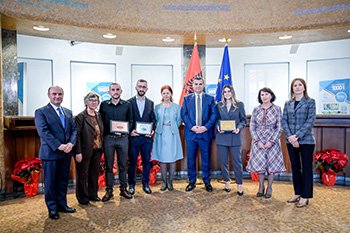
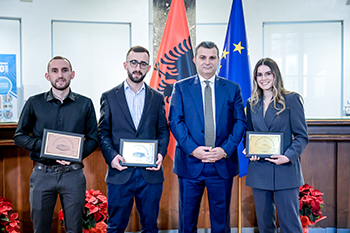
Furthermore, Mr Sejko enthusiastically pointed out that the media coverage of the economic and financial developments in Albania and abroad has been in full congruence to the institution's expectations.
Governor Sejko re-affirmed that the Bank of Albania will continue to be a transparent institution, ready to provide opinions and assessments as necessary in all public debates, related to the performance of the country's economy and financial markets in the up-coming year. The Bank of Albania welcomes the opinions and suggestions of the media representatives and is opened to further consolidate their mutual cooperation in the future. “The dynamic of current developments in the global economy coerces both, the Bank of Albania in one side and the media on the other one, to be more responsible and more devoted in informing the public in a timely, transparent and open manner.” – said Governor Sejko.
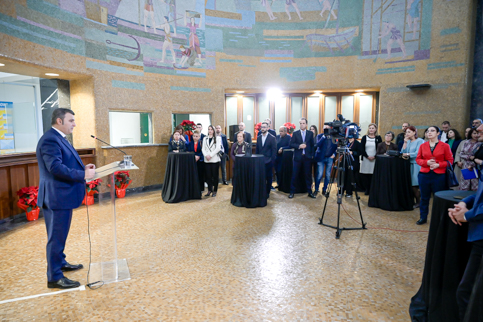
During the end-of-year event, the three winners of the traditional competition “Governor’s Award for the Best Diploma Thesis 2022”, were announced”. This annual event is dedicated to Albanian students graduated in Albania and abroad, for scientific research on issues related to integration, international monetary and economic developments, price and financial stability, financial literacy etc.
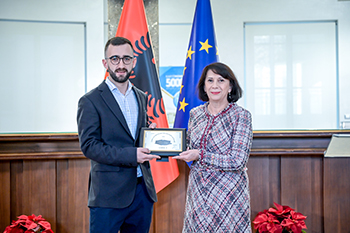
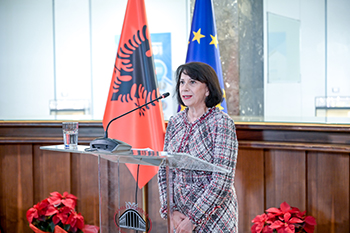
The first prize was awarded to Ms Pegi Myshqeri, studying at Goethe University, in Frankfurt, by the Governor of the Bank of Albania, Mr Gent Sejko, for the Master's thesis on: “The effects of ECB’s Asset Purchases on European Corporate Bond Markets“. This research assesses the impact and channels of the European Central Bank’s quantitative easing policies - specifically, the purchasing program in the corporate sector (CSPP) and the emergency purchasing program during the pandemic (PEPP) - on corporate bond's yields, employing an empirical approach of assessing the denominated corporate bonds’ yield in both euro and US dollar.
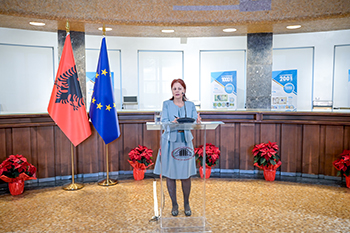
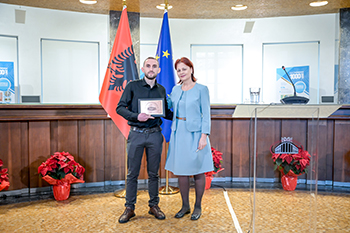
The second prize was awarded to Mr Taulant Yzellari, studying at the University of Cologne, in Germany, by the First Deputy Governor, Ms Luljeta Minxhozi, for the thesis on: “The international dynamics of real estate prices and the macro-economy”. The study analyses the relationship between the GDP, the CPI, real estate prices, lending and interest rates, using a balanced VAR panel, for 17 OECD countries over two time periods, 1975-2017 and 1984-2017, while also observing the Granger causality.
The third prize was awarded to Mr Ilir Brasha, studying at the University of Tirana, by the second Deputy Governor of the Bank of Albania, Ms Natasha Ahmetaj for his thesis on: “The impact of government spending on economic growth, the size of the multiplier. The case of Albania”. The prize was award by the second Deputy Governor of the Bank of Albania, Ms Natasha Ahmetaj. This study analyses the impact of government spending on the level of the Gross Domestic Product, by calculating the government spending multiplier by using two methods: the empirical approach method Structural Vector Auto-Regressive (SVAR) and the Bucket Approach. The analysis also focuses on the comparative approach of government spending in the Western Balkan countries, as well as the government spending components over the years, for the case of Albania.

 Linkedin
Linkedin
 Twitter
Twitter
 Youtube
Youtube
 Facebook
Facebook
 Flickr
Flickr
 RSS
RSS
 Subscribe
Subscribe
 Feedback
Feedback